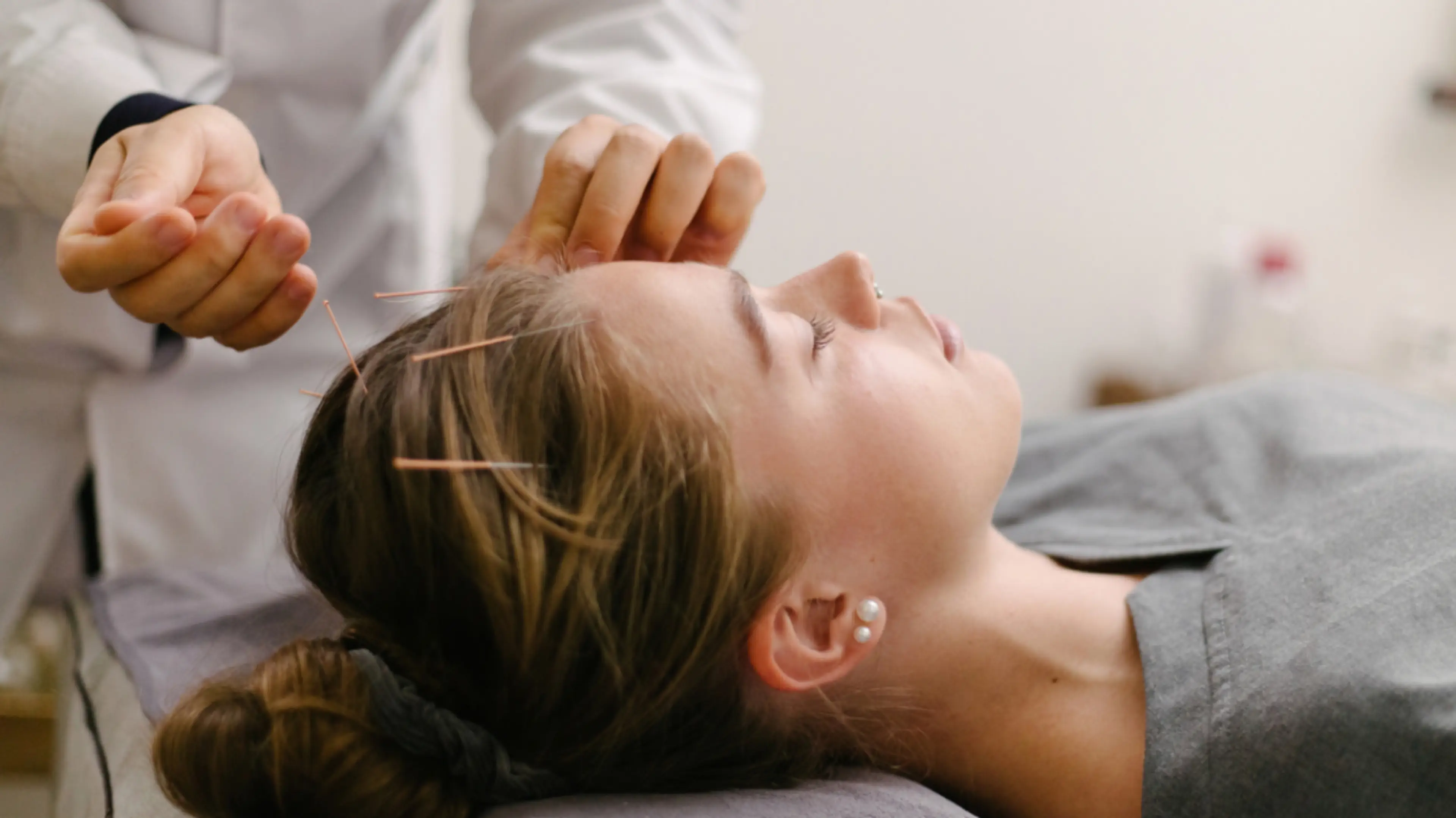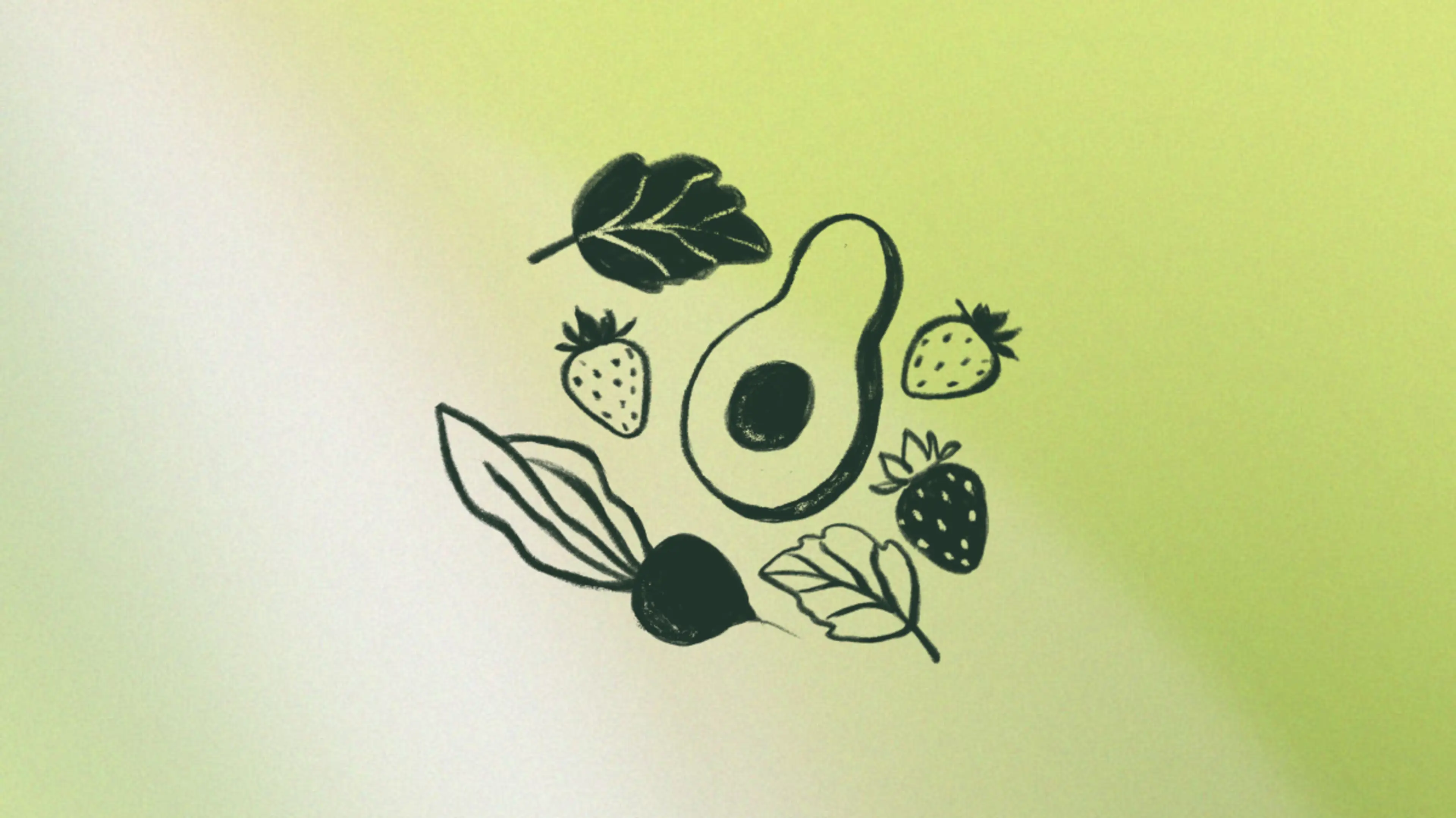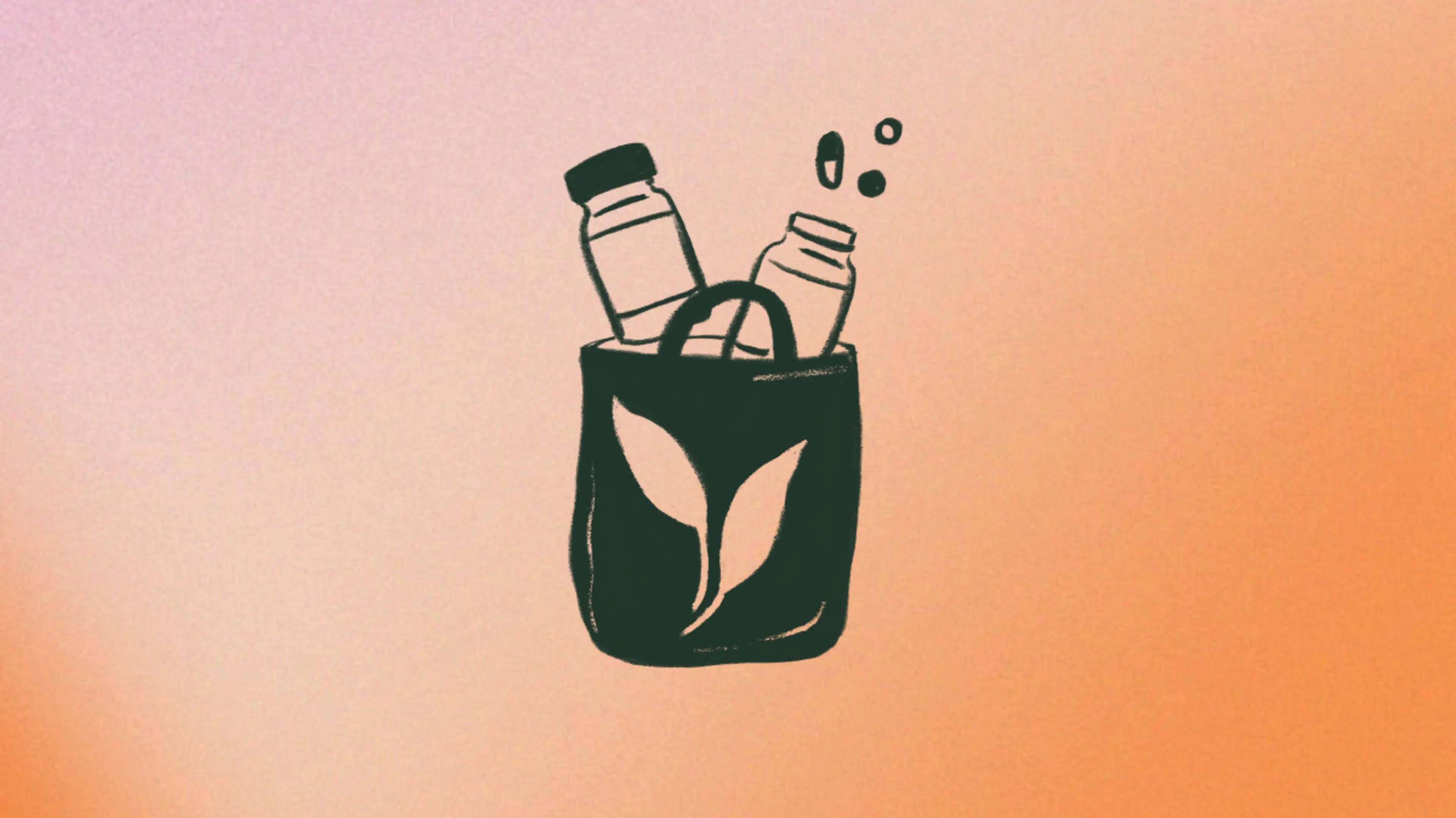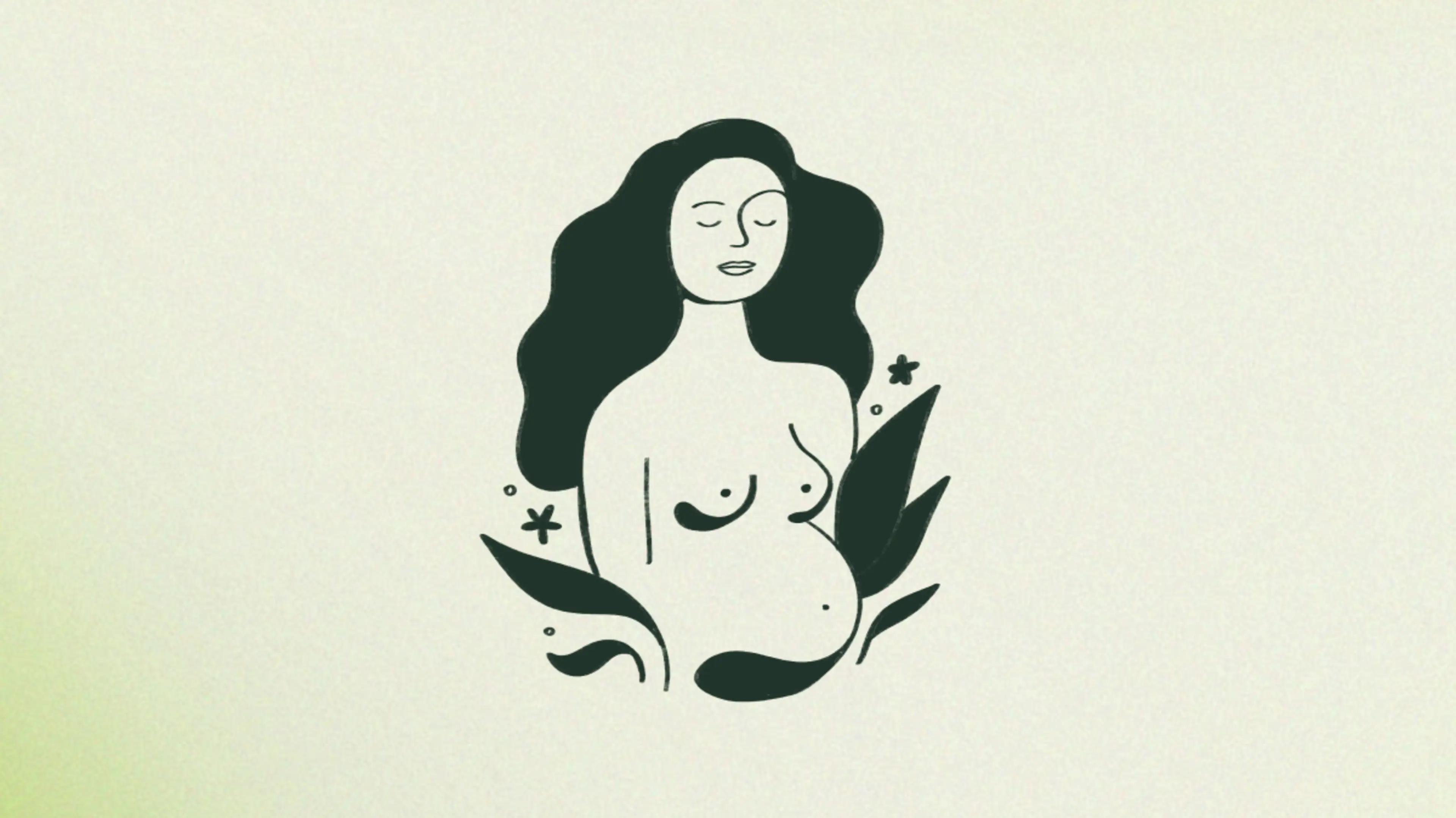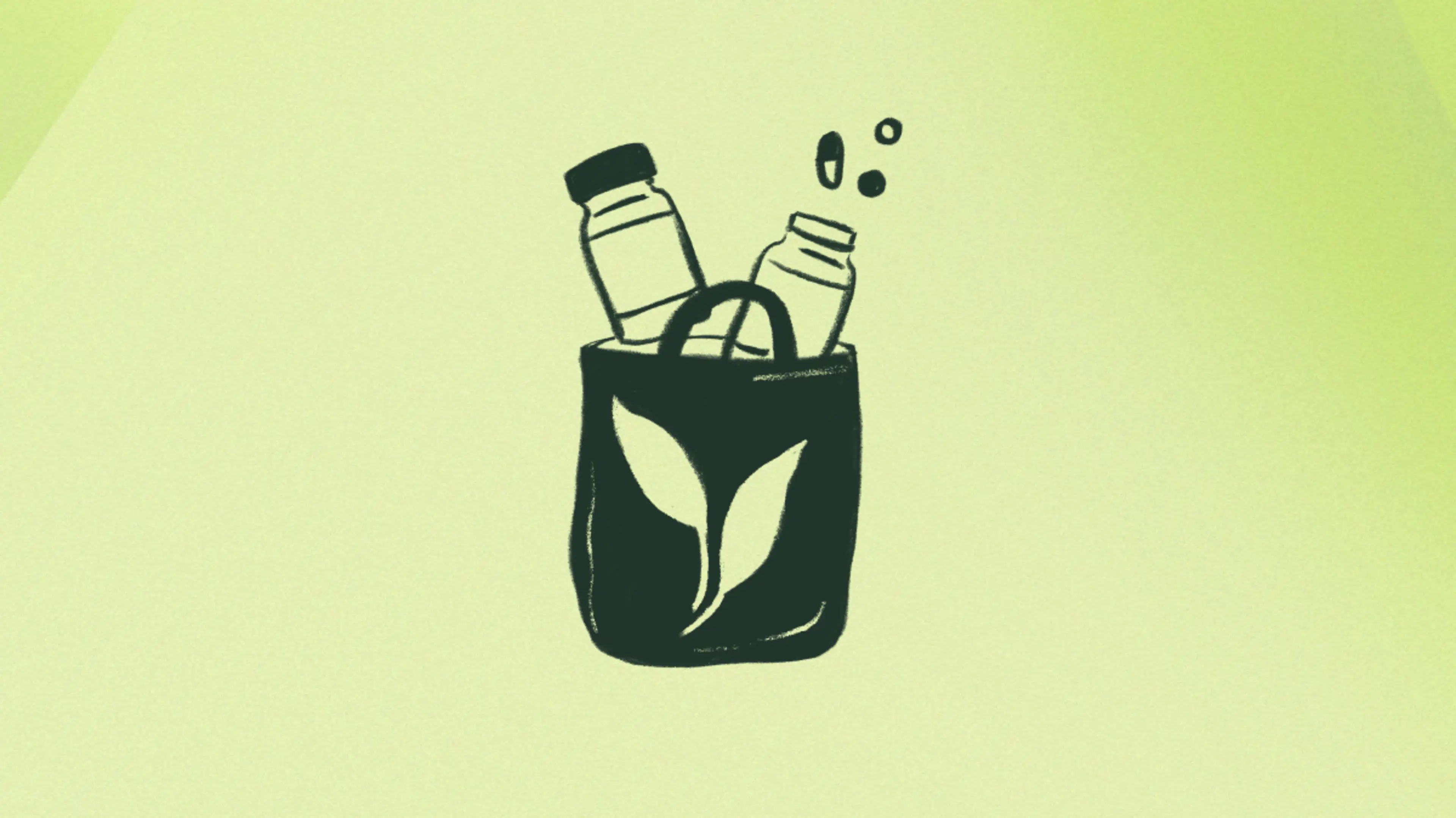Growing a tiny human comes with its fair share of physical aches and pains, sometimes in places you didn’t even know existed. Luckily, there are a few different ways to cope with uncomfortable pregnancy symptoms. In addition to Tylenol, prenatal massage and chiropractic care, many pregnant people turn to acupuncture for some relief. Acupuncture may sound intimidating at first (especially if you’ve never done it before), so we enlisted Aimee Ruiz1 , a licensed acupuncturist and member of the Acupuncture and Traditional Chinese Medicine Board of Reproductive Medicine (ABORM), to tell you everything there is to know about getting acupuncture while pregnant.
What is Acupuncture?
Acupuncture is a “traditional East Asian medicine practice [aims to] rebalance the circulation of blood, qi and fluids throughout your body,” says Ruiz. It also helps relieve pain and reduce stress, making it a popular treatment for those experiencing pregnancy aches and pains.
How Does Acupuncture Work?
You probably have some technical questions about exactly how acupuncture. “Acupuncture points [essentially activate] your body’s ability to heal itself,” says Ruiz, “it does this by [stimulating] your central nervous system, immune system, circulatory system and lymphatic system.”
So what are acupuncture points? Practitioners of acupuncture believe that there are around 2,000 such points in the body and that they’re connected by pathways. According to Johns Hopkins Medicine2 , “these pathways create an energy flow (qi) through the body that is responsible for overall health.” Improving that flow can alleviate uncomfortable symptoms you may be feeling.
What Does Acupuncture Feel Like?
The answer to this question will change based on who you ask. “Some people experience a tiny pinch with the needle insertion,” Ruiz says, “[while] some people feel no sensation at all. You might also feel a dull, achy sensation that dissipates quickly after the needle has been inserted.”
The thought of needles may instantly conjure up feelings of pain but that’s typically not the case. In fact, according to Ruiz, it’s quite the opposite. “For most people, it’s a gentle and relaxing experience,” she says.
What Are the Benefits of Acupuncture during Pregnancy?
There are many benefits to acupuncture during pregnancy, including relieving morning sickness, stress, fatigue and heartburn. Some people even begin acupuncture treatment before getting pregnant to help with infertility.
According to the National Institute of Health (NIH)3 , acupuncture can also lead to, “increased uterine blood flow, inhibited uterine motility and the anesis of depression, anxiety and stress.” And while its efficacy in treating infertility still is being studied, researchers have observed positive effects in people struggling to conceive.
Does Insurance Cover Acupuncture?
It’s also becoming more common for insurance companies to cover acupuncture, but you’ll want to call your plan before making your first appointment. If your insurance plan does cover treatment, Ruiz says you’ll want to “find out which specific conditions they (insurance companies) cover.”
What Pregnancy Symptoms Can Acupuncture Treat?
According to Ruiz, some of the pregnancy-related symptoms that acupuncture helps treat are:
Morning sickness and hyperemesis gravidarum
Fatigue
Constipation
Pain (hips, pelvis, back, shoulder, pubic symphysis)
Gestational diabetes
Intrauterine Growth Restriction (Intrauterine G R)
Placenta previa
Bleeding in pregnancy
Breech baby position
Swelling
Labor preparation
And that’s not all! “Other common health issues treated with acupuncture include allergies, digestive complaints, headaches, injuries and insomnia,” Ruiz says.
Is it Safe to Get Acupuncture While Pregnant?
Acupuncture is generally thought to be safe4 for pregnant people. “All licensed acupuncturists are trained to avoid certain points that are not safe to use during pregnancy,” says Ruiz, so it’s essential to find a qualified acupuncturist who is properly trained and (most importantly) has experience working with pregnant people.
If you’re someone who is interested in more holistic prenatal care, acupuncture may be a great option for you since it’s a noninvasive, whole-body wellness approach.
“It can be a helpful addition to your care team especially if you come into pregnancy with pre-existing conditions and you are unable to take your regular medication for them,” says Ruiz. There are some instances when you should use caution though, specifically if you have “bleeding disorders, pacemakers or infectious skin diseases.”
Keep in mind: everyone’s bodies and pregnancies are different, so it’s best to discuss your health history with your acupuncturist and your doctor before beginning any treatment.
EXPERT SOURCES:
Aimee Ruiz, L.Ac., FABORM is an acupuncturist and herbalist in Oakland, CA at East Bay Acupuncture1 and specializes in fertility, prenatal, birth, and postpartum care.

